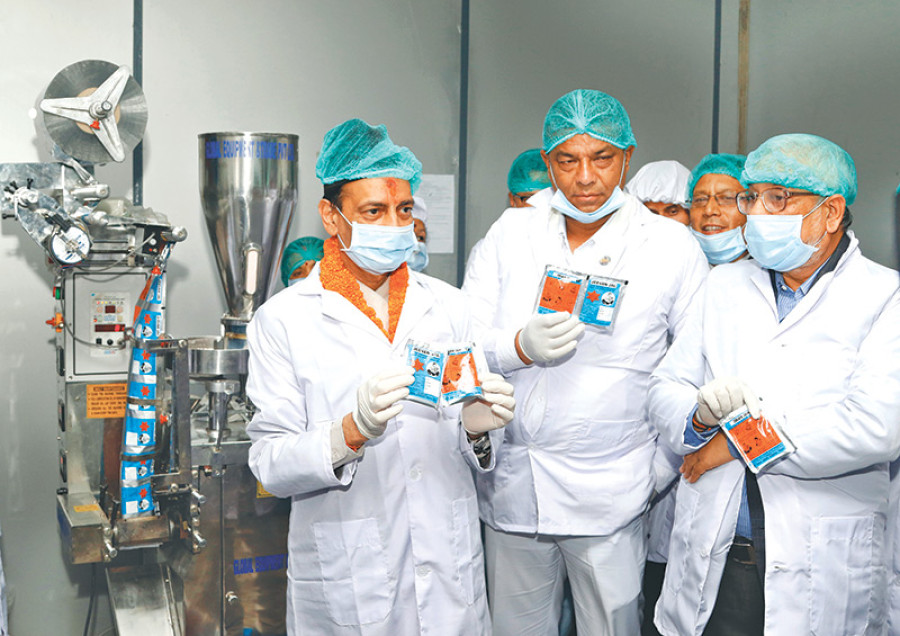Money
Iconic Jeevan Jal is back in production
Production of Jeevan Jal, the most well known brand of oral rehydration salts (ORS) in Nepal, has resumed after a hiatus of eight years.
Production of Jeevan Jal, the most well known brand of oral rehydration salts (ORS) in Nepal, has resumed after a hiatus of eight years.
Production ceased after the state-owned manufacturer, Nepal Drugs, shut down. The factory came back on line after eight years on Sunday.
Industry Minister Nabindra Raj Joshi inaugurated the company’s ORS manufacturing unit by turning on the machine’s switch amid a ceremony.
Jeevan Jal will hit store shelves soon. The maximum retail price will be slightly lower than that of other products that are currently available in the market.
The drug manufacturer is now planning to produce paracetamol and tablets of the non-penicillin group within the next three months.
In the second phase, the company will produce 15 other drugs including Amzit, albendazole, amoxcillin, iron tablets, cough hist and distilled water, according to Nepal Drugs.
Subsequently, the pharmaceutical company will produce 70 other drugs that have been categorized as ‘highly essential’ by the government by coordinating with the Health Ministry.
“Our main mission behind reviving Nepal Drugs is to provide quality medicines to the general public at affordable prices,” said Joshi, who steadfastly worked to revive Nepal Drugs right after assuming the post of minister.
He directed the company’s management to stick to the ministry’s plan and maintain production efficiency.
Established more than four decades ago, Nepal Drugs, the country’s oldest pharmaceutical company manufacturing allopathic drugs, was defunct for around eight years for failing to adopt Good Manufacturing Practices (GMP) set by the World Health Organisation (WHO).
In its heyday, Nepal Drugs used to manufacture 120 types of allopathic drugs.
The company was revived after the Cabinet approved the Industry Ministry’s proposal to bring it back to life in September 2016.
The Cabinet also decided to extend a Rs146.5 million loan to the company to procure essential raw materials and upgrade the facilities at the factory as per the WHO GMP.
Nepal Drugs started production of ORS by upgrading the facilities after receiving the first installment of the loan amounting to Rs64.8 million from the Finance Ministry.
Currently, there are 97 employees at Nepal Drugs and the ministry plans to introduce a voluntary retirement scheme to downsize the workforce and inject fresh blood into the company.
Meanwhile, the Industry Ministry has been mulling to revive other inactive state-owned entities like Hetauda Textile, Birgunj Sugar Mill, Nepal Orind Magnesite, Agriculture Tools Factory, Butwal Dhago Karkhana, Nepal Metal Company and Gorakhkali Rubber Udyog.




 9.89°C Kathmandu
9.89°C Kathmandu














